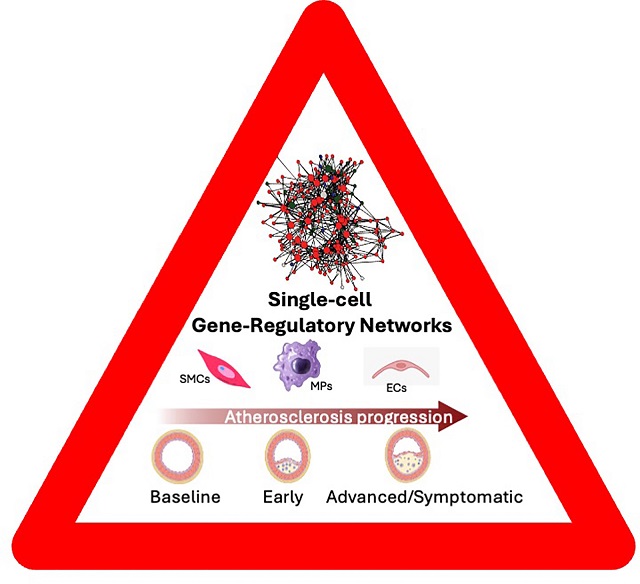Nikhil Prasad Fact checked by:Thailand Medical News Team Jun 20, 2024 10 months, 6 days, 15 hours, 7 minutes ago
Medical News: Scientists from the University of Tartu-Estonia, alongside international collaborators, have uncovered groundbreaking mechanisms behind the occurrence of strokes. Their study, covered in this
Medical News report, provides new insights that could lead to more precise treatments and better diagnostics, significantly improving cardiovascular health.
 Researchers From Estonia Discover Details Of Causes Of Stroke.
Researchers From Estonia Discover Details Of Causes Of Stroke.
Understanding Stroke and Atherosclerosis
Every five minutes, someone suffers a stroke, a serious medical condition that can result in brain bleeding or ischemia. Strokes can affect people of all ages and often lead to death or lifelong disabilities. A major cause of strokes is the hardening of the arteries, known as atherosclerosis. This condition involves various types of cells in the vascular wall, primarily endothelial cells, smooth muscle cells, and different forms of immune and inflammatory cells.
Advanced Techniques Reveal New Insights
The research team, including Dr Giuseppe Mocci, Dr Katyayani Sukhavasi, Dr Arno Ruusalepp, Dr Heli Järve, and Dr Johan Björkegren, utilized a cutting-edge technique called single-cell RNA sequencing (Smart-Seq2). This allowed them to create the most detailed multi-species single-cell dataset of atherosclerosis to date. By applying advanced bioinformatic analysis, they identified specific gene expression patterns in vascular cells that contribute to advanced atherosclerosis.
Key Findings: Cellular Changes and Gene Networks
The study successfully reidentified previously known vascular cell subclusters and expanded the gene content of three distinct smooth muscle cell subclusters. These cells are associated with a transition to an osteogenic phenotype in advanced atherosclerosis. Additionally, the team identified three macrophage subclusters linked to proinflammation and high lipid content, which play a crucial role in advanced atherosclerosis.
Dr Giuseppe Mocci highlighted that integrating these six subclusters with 135 human gene-regulatory networks (GRNs) allowed the team to pinpoint several key GRNs responsible for vascular cell transformation leading to symptomatic carotid stenosis, a condition that significantly increases stroke risk.
Combining Data for Better Understanding
Dr Arno Ruusalepp emphasized the importance of combining bulk and single-cell RNA sequencing data from different species. This approach provides valuable insights into the biological mechanisms causing complex diseases like stroke. By targeting key locations in gene networks, this method is likely to be more effective than the traditional one-gene-at-a-time approach, especially for complex diseases.
Implications for Future Treatments
Dr Heli Järve added that this research represents a collaboration between genomics, clinical medicine, and public health. Such cooperation is crucial for real change. Understanding the molecular mechanisms of symptomatic atheroscle
rosis can lead to more targeted therapies and improved diagnostics for stroke. In the long term, this could enhance cardiovascular health for millions worldwide.
Dr Johan Björkegren emphasized that their research lays the foundation for new, more targeted therapies and improved diagnostics. By combining data from different species and focusing on gene networks, their findings provide a clearer understanding of how atherosclerosis leads to strokes and other cardiovascular events.
A Deeper Dive into the Science
The study also generated an extensive RNA sequence dataset from mice with human-like plasma lipoproteins and from humans with asymptomatic and symptomatic carotid plaques. This data was clustered into multiple subtypes, revealing advanced stages of atherosclerosis progression. By integrating this data with gene-regulatory networks from 600 coronary artery disease patients, the researchers identified significant enrichments in three arterial wall GRNs with major contributions to coronary artery disease heritability.
One of the key discoveries was the identification of GRN39, which was independently validated in multiple human datasets. GRN39 plays a critical role in transforming contractile smooth muscle cells into an osteogenic phenotype, promoting advanced and symptomatic atherosclerosis.
Conclusion
The research from the University of Tartu and their international collaborators marks a significant step forward in understanding the mechanisms behind stroke and atherosclerosis. By using advanced techniques and combining data from different species, the team has provided valuable insights that could lead to more effective treatments and better diagnostics. This research not only deepens our understanding of stroke but also offers hope for improved cardiovascular health for millions of people worldwide.
The study findings were published in the peer reviewed journal: Circulation Research
https://www.ahajournals.org/doi/10.1161/CIRCRESAHA.123.323184
For more about strokes, keep on logging to Thailand
Medical News.
Read Also:
https://www.thailandmedical.news/news/link-between-blood-vessel-health-and-memory-issues-in-stroke-patients
https://www.thailandmedical.news/news/herbs-and-phytochemicals-oroxylum-indicum-extracts-boosts-brain-health-and-are-neuroprotective
https://www.thailandmedical.news/news/glutamate-oxaloacetate-transaminase-enzyme-a-new-hope-for-stroke-recovery
https://www.thailandmedical.news/news/blueberries-could-hold-the-key-to-stroke-recovery
